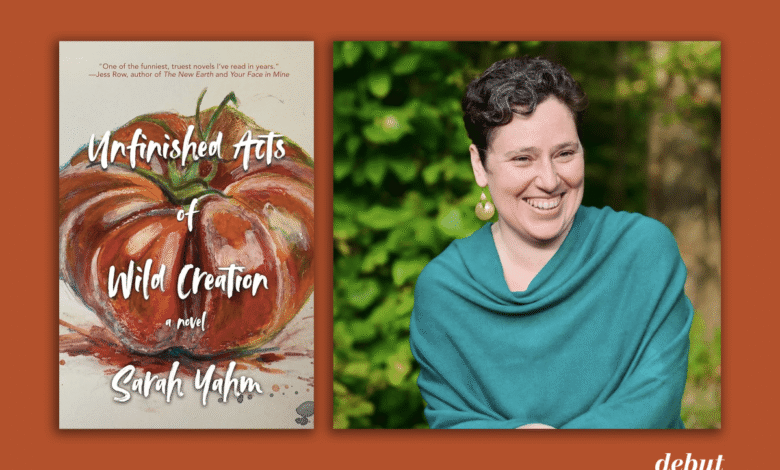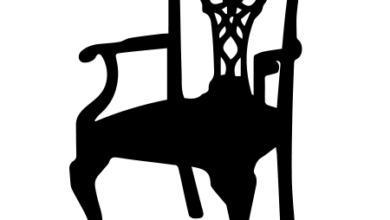Unfinished Acts of Wild Creation Author Sarah Yahm is always inspired by Grace Paley – debutiful

Sarah Yahm’s debut novel, Unfinished Acts of Wild Creation, follows Louise Rackoff as she meets Leon Rosenberg at a Rosh Hashanah dinner in 1974. This sparks a decades-long journey of marriage, motherhood, and meaning. But when Louise is diagnosed with the same degenerative disease that claimed her mother, she makes the radical decision to disappear rather than put her family through her decline. What follows is a deeply moving exploration of grief, connection, and what it means to find beauty in the broken.
Drawing on personal experience and years of work exploring the social meaning of illness, a former educator, oral historian, and documentarian, she lives in Vermont, and her work has appeared in Slate, Bellevue Literary Review, and on NPR.
We asked her to answer our recurring My Reading Life Q&A so readers could get to know her and the books that shaped her story.
What was the first book you were obsessed with as a child?
A Swiftly Tilting Planet by Madeleine L’Engle. My sister read it to me in its entirety on a rainy, thunderstormy day, and I remember that porous, urgent, hazy feeling, the terrifying pleasure of not knowing whether the real world or the world of the book was more true. I wouldn’t recite the runes out loud because I was both terrified that they would generate some sort of magical repercussion I wasn’t prepared for, and also terrified that they wouldn’t, and I would be stuck in quotidian, magicless real life.
What book helped you through puberty?
Oh, god, I don’t know. Everything. Just the existence of the next book to read, whatever was in my hand or my backpack, so I could safely escape into it and not interact with my peers. This was the New York City suburbs in the early ’90s. It was not a gentle time. My parents handed me books and I devoured them, and then they handed me more. But if I had to pick, I would say Isabel Allende from my mother, which fed my dreamy earnest side; and Vonnegut from my father, which fed my cynical, absurdist side.
What book do you think all teenagers should be assigned in school?
So I think I reject the premise that all teenagers should read the same book. But if I have to pick one, I would say Station Eleven, because we live in apocalyptic times. And if they can think about what substantive, beautiful survival looks like, they’re on the right path.
If you were to teach a class on Damn Good Writing, what books would make the syllabus?
You realize that this question tortures me, right? I think it probably tortures everyone who answers it. So this is just going to be a random scattershot selection, which I’m going to doubt and want to change later. But here goes: something Grace Paley; something James Baldwin; a selection from The Things They Carried, because it’s still one of the best meta-reflections on storytelling itself; The Bluest Eye because it’s the only Morrison that you can read in its entirety on an action-packed syllabus; a section of Miriam Toews’s Women Talking because people really need to learn how to write women talking to each other; one of the insomniac ramblings from Martyr by Kaveh Akbar; one Olive Kitteridge short story; and (I kid you not), Frog and Toad.
What books helped guide you while writing your book?
Grace Paley always. Crossroads by Jonathan Franzen. I studied the way he layers multiple perspectives within a family system. Miriam Toews, because she perfectly shifts between the registers of comedy and tragedy and shows intimacy between generations of women like no one else. The New Wilderness by Diane Cook, which is also about a mother who leaves for an understandable reason.
What books are on your nightstand now?
The genocide in Gaza and the (in all likelihood) end of the American experiment are breaking my heart. So I am diving into literature and history and critical theory to try to understand how we wound up in this cataclysmic present. I’m most of the way through The Antidote and it’s blowing my mind and kicking up some low-level background generative thoughts for a new project. I’m also reading Melting Point by Rachel Cockerell and rereading Chabon’s The Yiddish Policemen’s Union, Mahmood Mamdani’s Citizen and Subject, and Joe Sacco’s Footnotes in Gaza.
Source link

